Recruit PKB College Consultant Brandi Jackson recently caught up with Georgia Southern Women’s Head Coach Emily Kuhfeld to get her thoughts on the college recruiting process and her own coaching philosophy.
What is your own coaching philosophy?
My coaching philosophy is to help my players build their characters, understand time management, and encourage and inspire them by having unlimited belief in each of them. My college coach was equal parts believe in us, love us and push us to be our best, and I really look up to her in what kind of coach I want to be.
What do you love about being a college coach?
I love Coaching for so many reasons. The relationships with my players and their families, helping them improve on and off the course, being ‘in the hunt’ in competition with them, and being able to work for a wonderful University like Georgia Southern.
What do you look for with a resume and swing video?
I look for improvement over time on a resume and look for solid fundamentals on a swing video. How organized and clear are their emails? Do they have basic writing skills? Is it a mass email? I look for personalized and well- written correspondence.
What are some good questions you ask players on visits to help determine the best fit?
I will try to let the players and their families do a lot of the talking. It becomes very clear how involved the parents are, and how motivated the SA is the more that I can listen to the family dynamics and who dominates the conversation. A lot of recruits will say that they are hard workers who want to be a part of something special. Ill ask them about what they do daily towards their golf games, what their goals are, how they approach swing changes, and then just listen. If I start hearing the parents jump in and answer a bunch of questions, or hear a lot of excuses about how busy they are, etc, then I have some reservations about that player. When a player shows me that they are very serious about their games, and golf is a priority to them, I get really excited! I love coaching players that are self-starters, understand their own games, and are driven to be the best student athletes they can be. There is also a part of recruiting which is hard to explain; it is almost like a gut reaction to the player. I listen to myself on this, and what kind of overall feeling I get with the bond between myself and the recruit.
What are some good questions they should ask you to help determine the best fit?
I like when a recruit is prepared with questions- even if they have them written down to remember. When a recruit asks me about our weekly schedule, qualifying, and what sort of role I have in the development of my team, those are good questions. If they ask how many hours a week the team practices, or what scores it takes to travel, that tells me something as well. I don’t really want someone coming in trying to be the 3-5 player, or just looking at the minimum needed to be on the team. I always appreciate it when a recruit has done a little research on college golf, and my team in particular.
How do you structure your practice and qualifying?
We are trying something new this spring, and I can’t wait to see how it goes! I have found that on-course one on one time with my players is incredibly beneficial. It is special time where they get 100% focus and immediate feedback from my assistant and I, and we also have time to check in with them on their lives and that bond gets strengthened as well. We are going to do this one on one on course time once or twice a week, and then have 2 days of pure team competition. I love to put them in a situation where they each need to contribute for the team to accomplish something (just like at a tournament), and having them root and help each other seems to be great for team building as well. We also have time where we work with them on technical issues they may have, wedges and short game. We had tons of qualifying last fall, and I plan on not having as much in the spring. We will be spending a lot of time on the greens!
For qualifying, we will be trying something new as well. We will set a total team score for that day (say 295), and those who are ‘counters’ get a certain number of points. If the team does not reach the total score goal, then less points will be given. I always have at least 1 coaches pick for each tournament.
What do you feel junior golfers can do to improve their games?
Course management and short games!!!! For sure. I have thought about when I retire from coaching (a long time from now:), opening up a 100 yards and in academy. The overall lack of knowledge in these areas is one of the biggest hurdles I face as a coach. Recruits and players seem to know more about track man numbers and the perfect backswing position than where to aim, how to play shots into pins, how to pick the right clubs, and strategies on and around the greens.
How can they be more prepared for college golf?
This pretty much goes back to #7 as well. I remember my freshman year I was totally overwhelmed with everything that was thrown at me, and didn’t feel like I had enough technical time for my game, as we were always playing. Really understand what makes you a great golfer- and what causes what in terms of your ball flight! It took me a while to understand that, and you don’t want to be working on your swing technique when you are playing and trying to win a qualifier or tournament!
What is the biggest mistake you see families make through the process?
I see a lot of families start the process too late. It is getting earlier and earlier these days- which is a positive and a negative. Being able to come up with a solid resume and swing video and sending that out freshman year seems to be the norm now! I think parents sometimes can be too involved- I would rather hear from the golfer herself than from her parents in the beginning. Then as we build the relationship, a few parent chats are good. Sometimes parents do all the work for their child, and it makes me wonder how self-sufficient the recruit is/ will be.
When you watch a player at a tournament what are things you look for?
I love to see players who are serious about their games. The ones who have a good routine in their warm up sessions, ones who take practice rounds seriously, ones who can set up and focus on their own putting drills and games, I like the ones who get a little ticked off (in a healthy way) after a poorly planned shot and kick themselves in the butt and get after that next shot. Are they competitors? Do they give up after a bad hole or shot? I look for how they treat their playing partners and parents on the course. I like seeing a recruit have a good practice after the round- they don’t necessarily need to be out there for hours and hours (even though the best players usually are:), but using their time efficiently and productively at that age is a great sign of things to come.
How much does length play a factor in recruiting a player to a D1 program? What do you consider short, average and long off the tee?
Length is a factor for sure, but at the same time, I also like players like I used to be! (Shorter, accurate!) I think it can be tough sometimes to get the longer player to think in a strategic way around the course, and I think it can be hard to get the shorter player to take more risks. I think a lot of recruits/ players think of length as the longest they can hit it- not necessarily their average drives. So, I usually get some high-ball estimations on this when recruiting! I feel like to play competitive D1 golf, a player has got to be able to fly the ball 200 yards at least- and have a wicked short game! It seems like someone who hits it 240-250 on average, a 7 iron going 150-155 has a length advantage they can really use in college golf.
How important is fitness and nutrition for a junior golfer?
We have done team presentations on nutrition, water intake, sleep time, the importance of strength and flexibility- and these things really become apparent as the season goes on. There are many reasons that can add up to a ‘slump’ or poor performance, and a lot of the time it can come from a student athlete not sleeping enough, not being fully hydrated and then not eating on the golf course. We focus a lot on taking care of these details- because they can add up and before you know it, your score can reflect it!


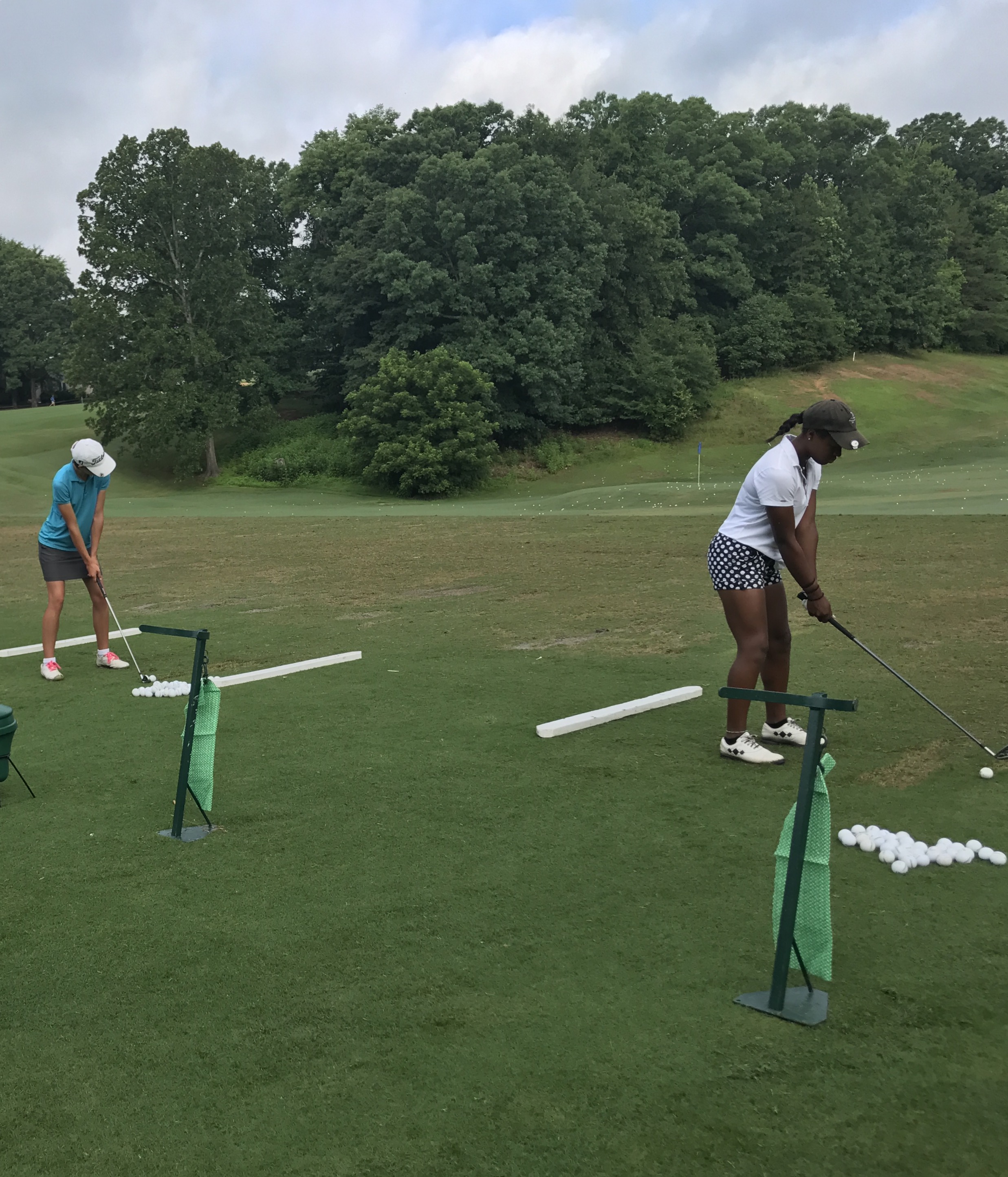
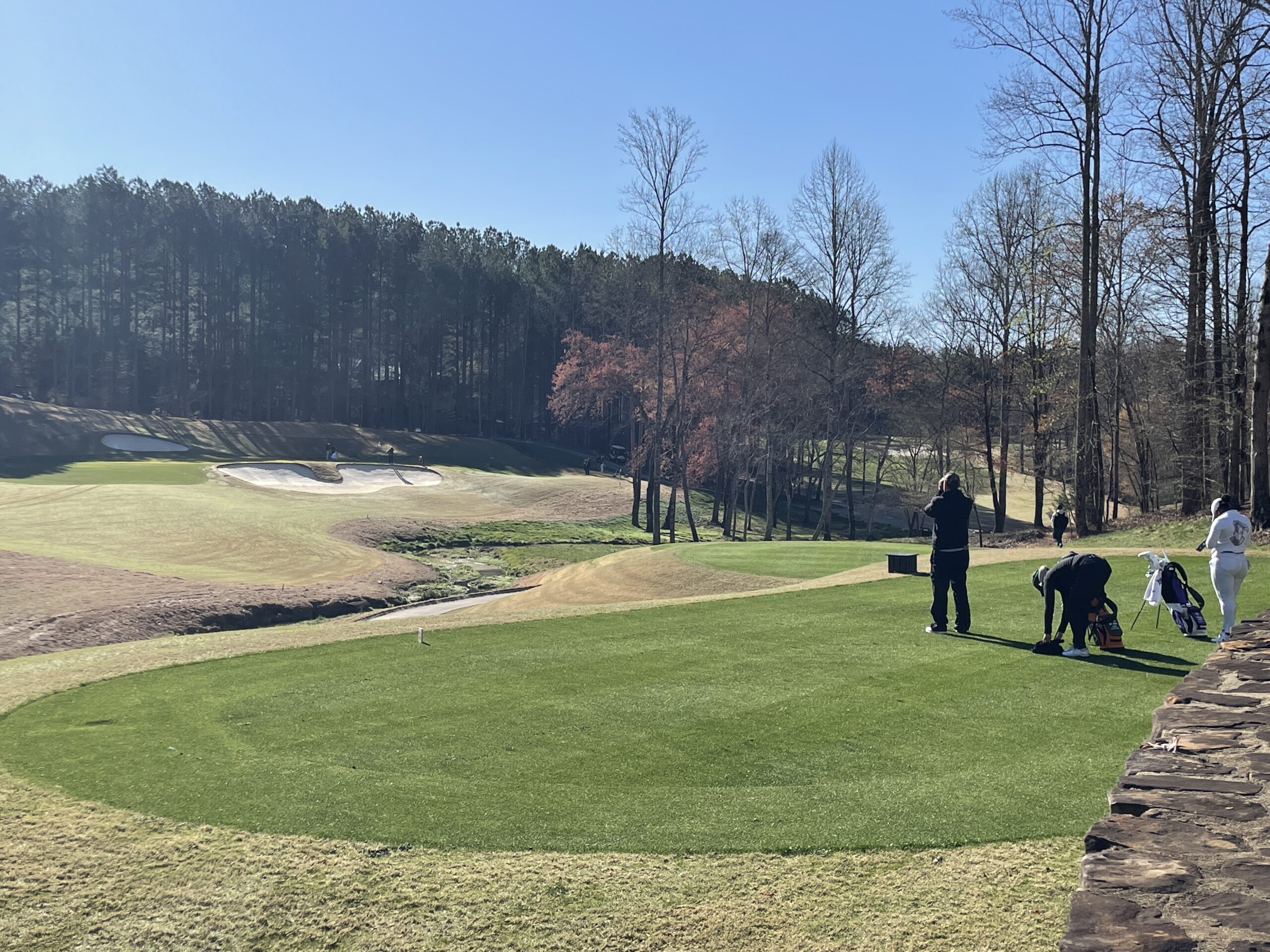
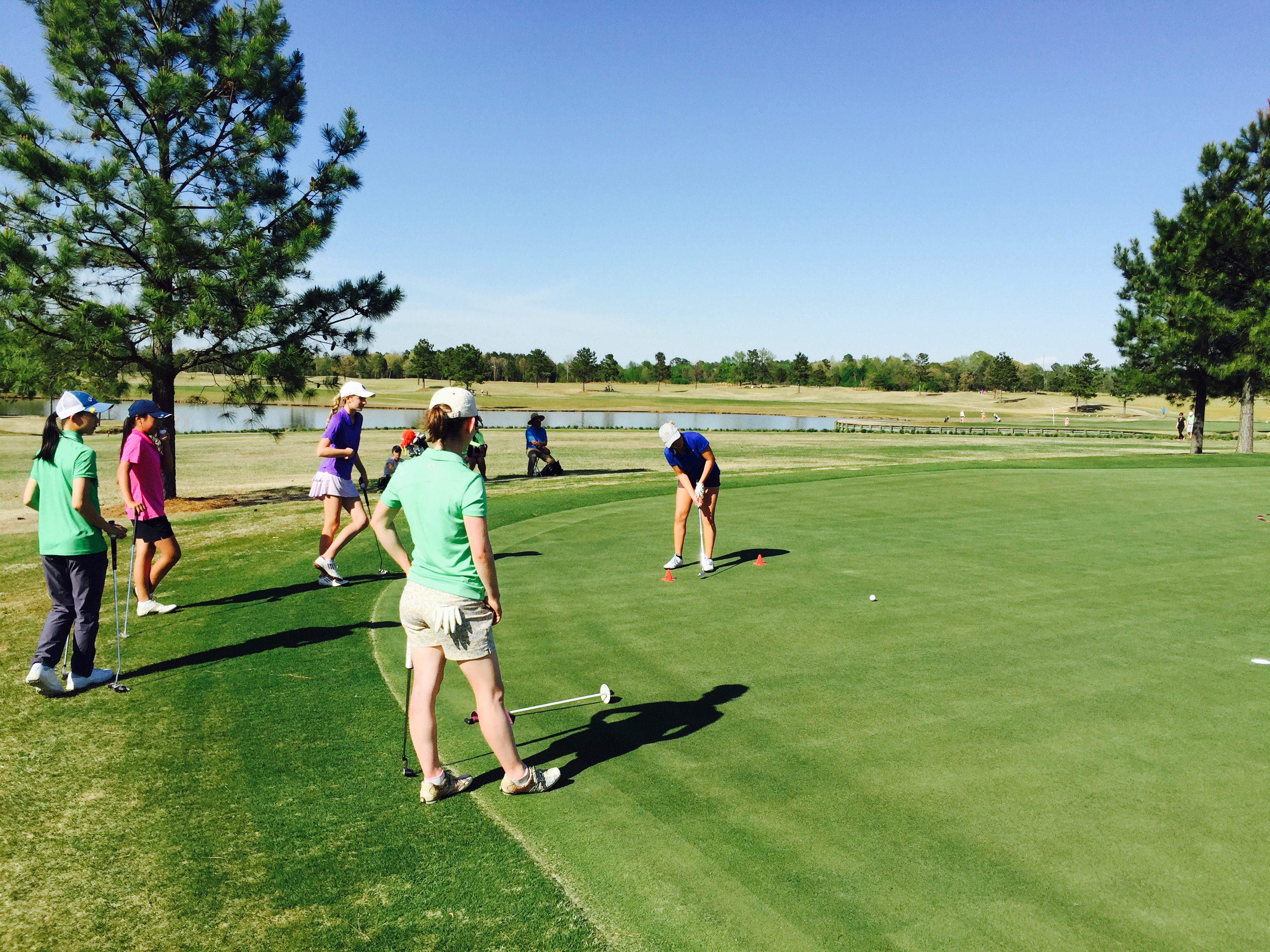
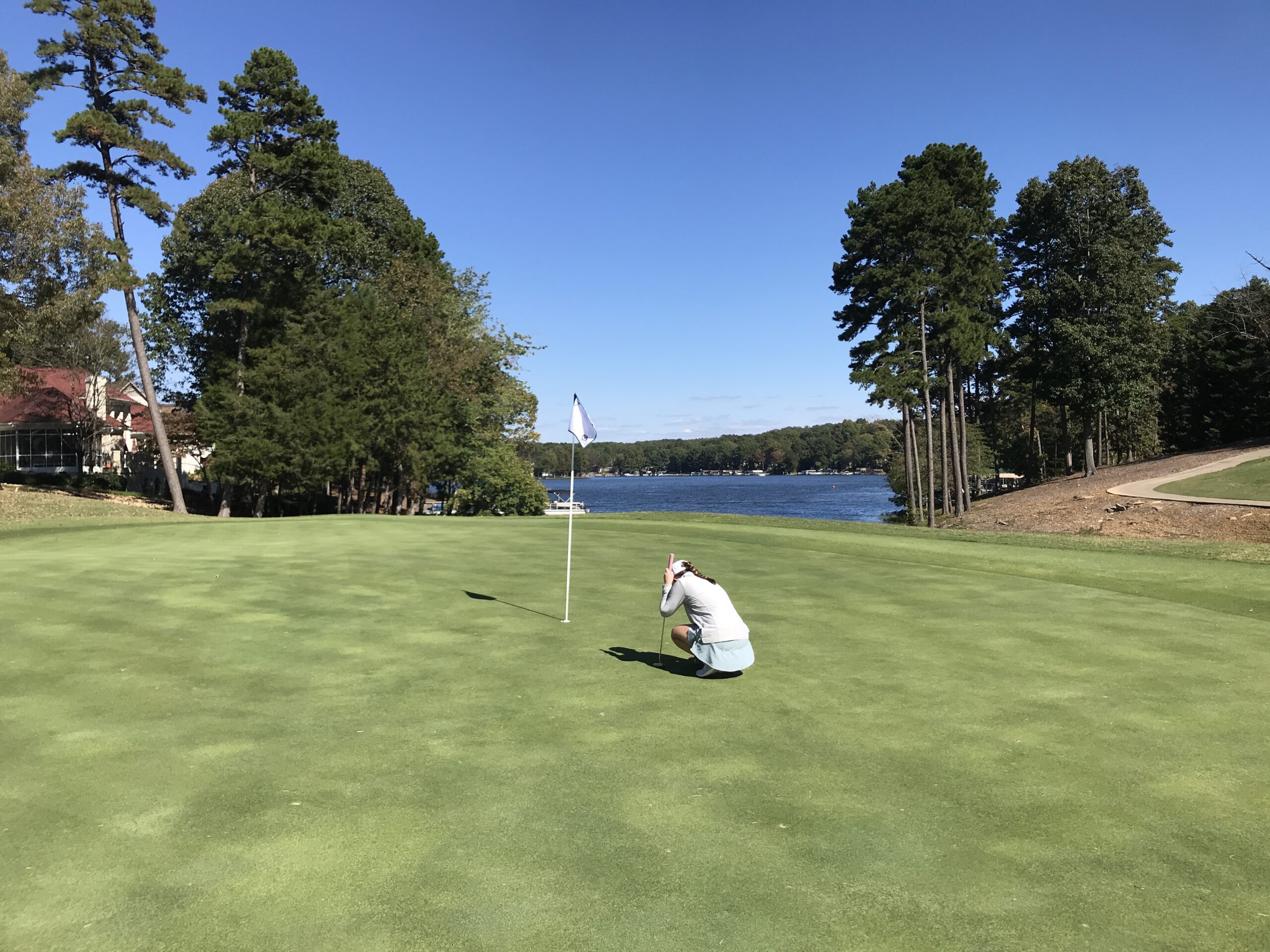
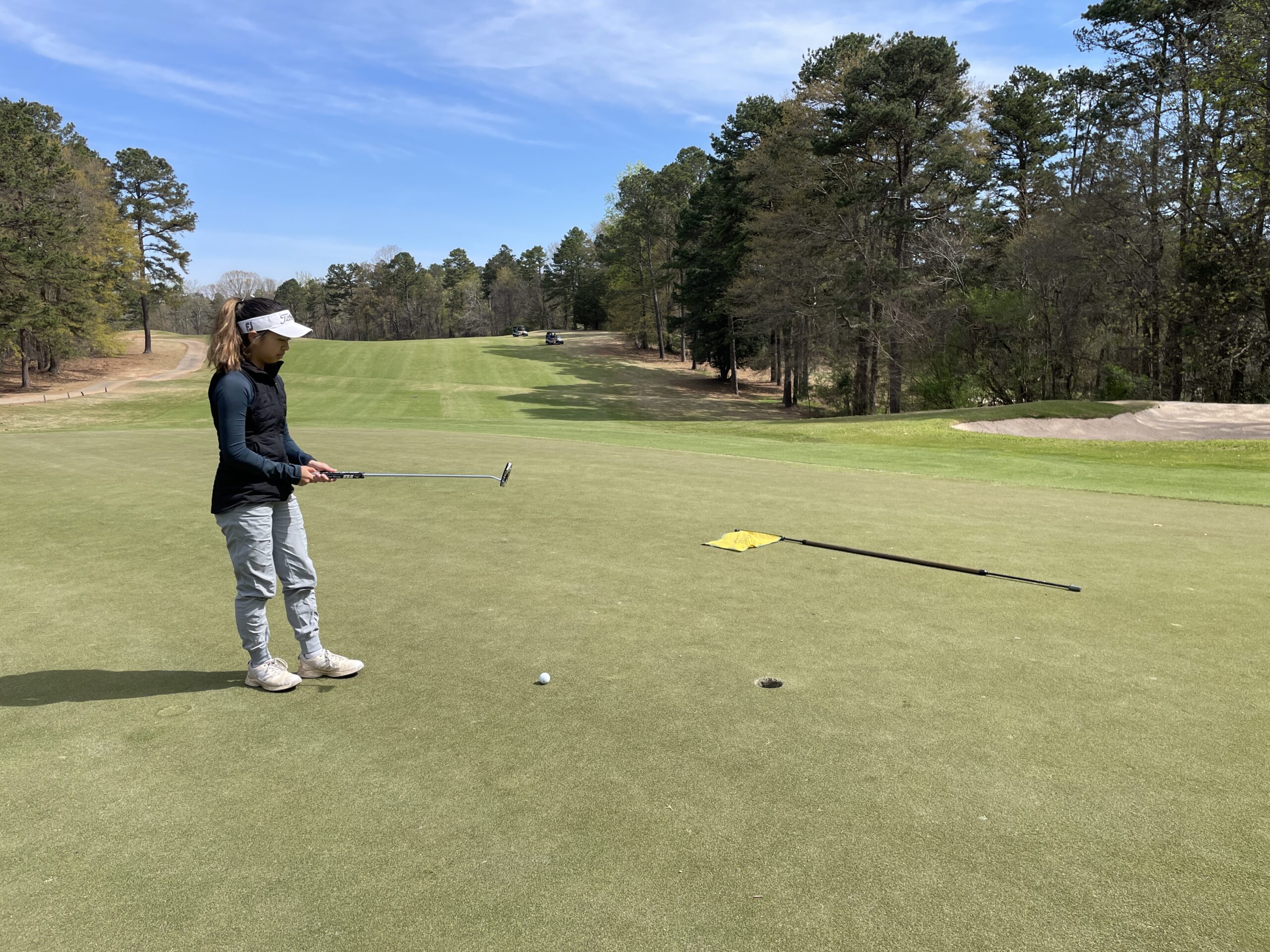
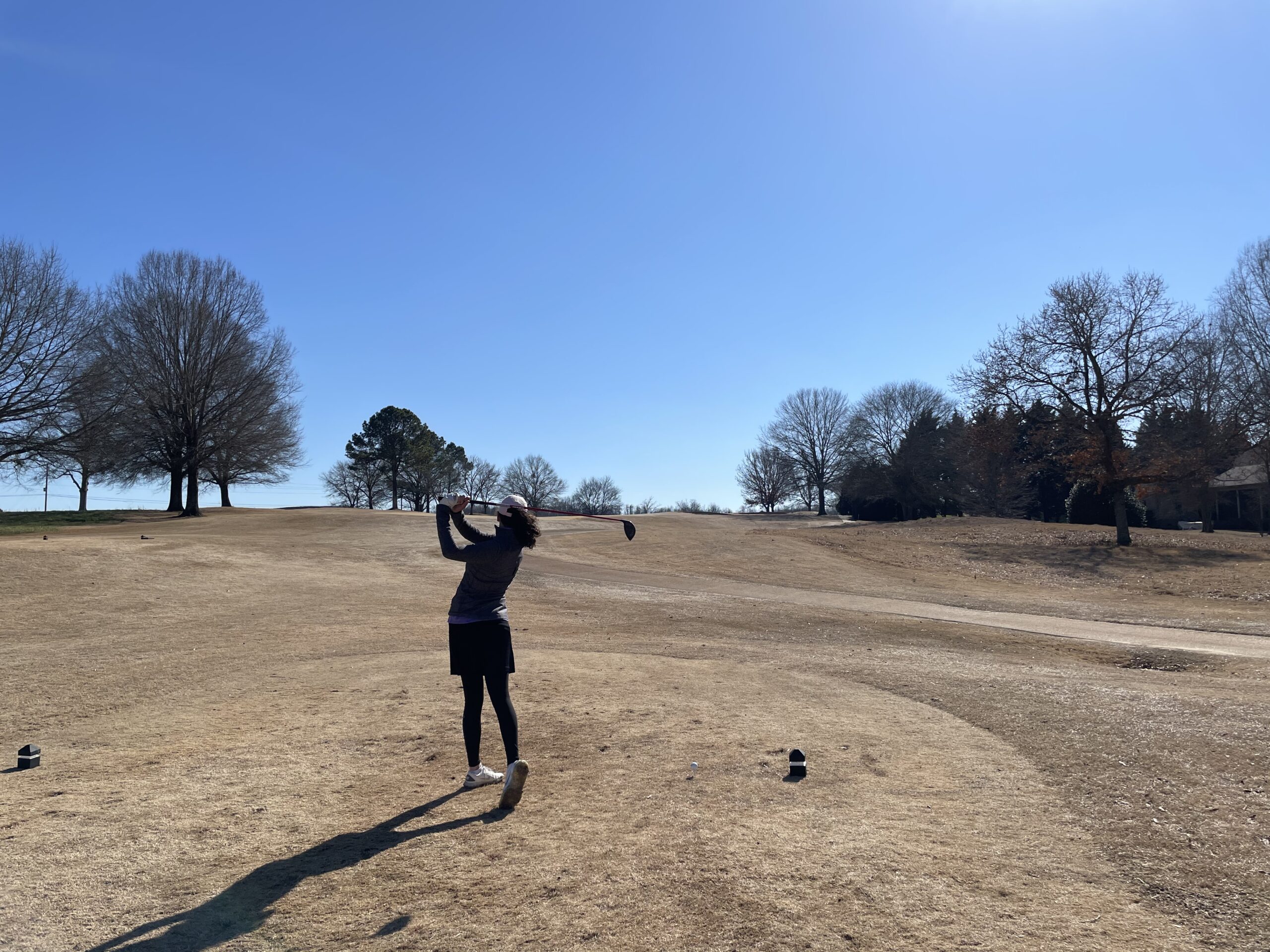
Thank you for your insight Really!
In this process of HS >.College golf and contacting a coach by email is it appropriate to ask to be placed on the colleges IRL or how is that accomplished correctly?